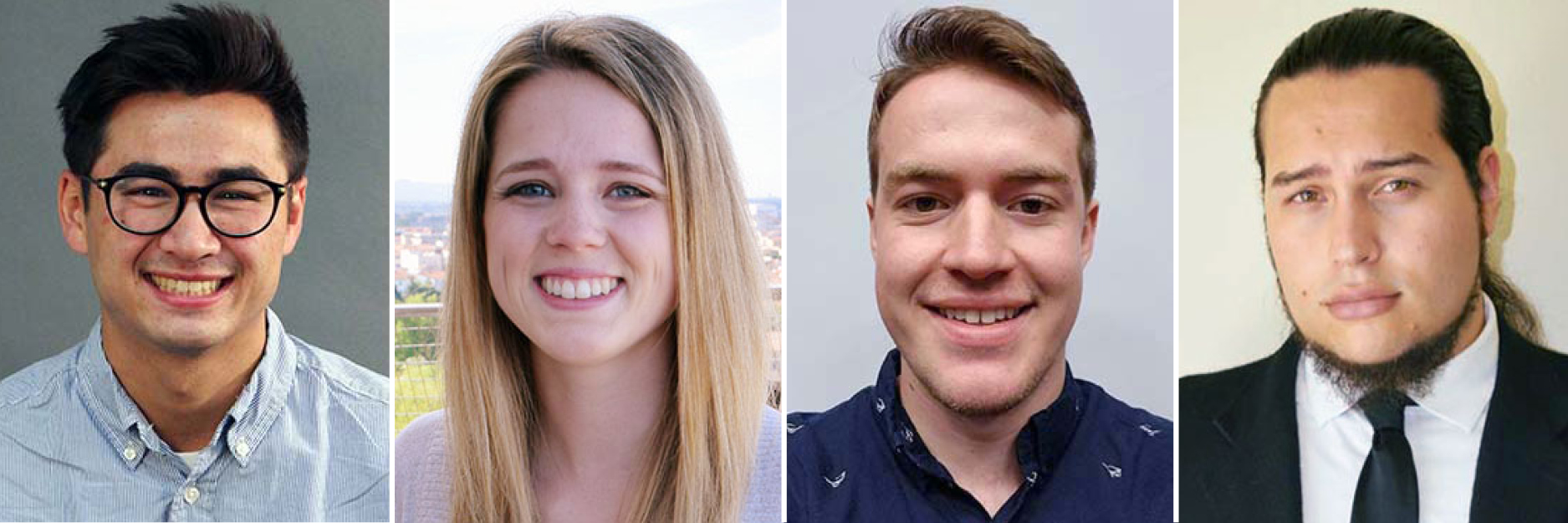The National Science Foundation has selected two graduate students in the College of Engineering at Oregon State University, as well as two recent alumni, as fellows in the prestigious NSF Graduate Research Fellowship Program.
The five-year fellowship includes three years of financial support, including an annual stipend of $34,000 and a cost-of-education allowance of $12,000 to the institution. The program recognizes and supports outstanding students in NSF-supported science, technology, engineering, and mathematics disciplines who are pursuing research-based masters and doctoral degrees. Only 10% of applicants receive fellowships.
Damon George, who graduated in 2019 with a Bachelor of Science in Computer Science from Gonzaga University, is currently pursuing a doctorate in computer science at Oregon State. As part of the Information Processing Group, George works under the direction of V John Mathews, professor of electrical and computer engineering, focusing on how machine learning and AI can be used to help people with disabilities.
“I am creating advanced prostheses that interpret people’s movement intent from their biological signals, with the goal of creating artificial limbs that operate and feel like natural limbs and are controlled by thought,” George said. “Modern prostheses tend to deteriorate in performance over time, often rendering them unusable, so I am developing adaptive prostheses that can learn from the user over time.”
Leni Halaapiapi, a 2019 graduate of Central Washington University, is also pursuing a doctorate in computer science. Working in the lab of Rakesh Bobba, associate professor of electrical and computer engineering, his research is in cybersecurity with a focus on swarm intelligence.
“Some projects I am currently working on are unmanned aerial systems (drone) security and nuclear power plant cyber vulnerability analysis,” Halaapiapi said. “I have an interest in swarm intelligence and swarm intelligence algorithms, so I hope to use the NSF funding to help further my knowledge in this domain and produce new and exciting research.”
Alyssa Ekdahl (’15 B.S., Chemical Engineering) is pursuing a doctorate in chemical engineering at the University of Texas, Austin. Her research integrates synthetic biology and engineering to study the structure and function of regulatory RNAs for therapeutic applications.
Kyle Chin (’19 B.S., Chemical Engineering) is currently pursuing a doctorate in chemical engineering from the University of Wisconsin, Madison. His research interests lie in developing chemical systems and 3D printing methods to allow better control of material structure and chemical composition across multiple length scales.
“It’s great that so many Beavers were awarded the fellowship,” Chin said.


